Orphan Boy - Interview
by Dave Goodwin
published: 25 / 11 / 2015
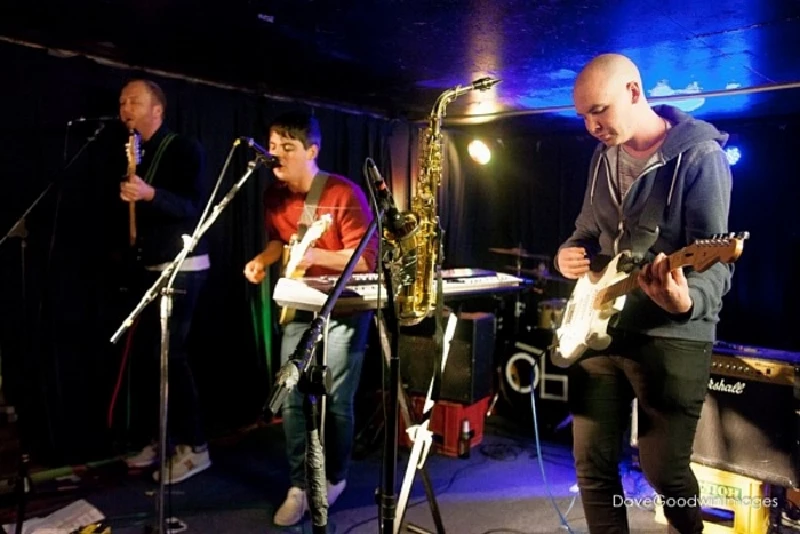
intro
Dave Goodwin speaks to indie rock band Orphan Boy about their reformation, recent third album 'Coastal Tones' and heavy touring
Orphan Boy have been described as “the great outsiders of British rock.” Over the years the British music industry has had a grand tradition of neglecting the talent under its nose. Orphan Boy consists of Rob Cross (guitar and lead vocals), Paul 'Smithy' Smith (bass), Chris Day (drums) and recent recruit Sam Carlton (keyboards), and their plight to become rock stars came to a premature demise in 2011, as a result of bad luck, bad timing and plain regional bias. As the lads say, “When was the last time you saw an A&R man in Cleethorpes?” It seemed at the time that they had been dealt a particularly cruel hand. The band started out in a gigging frenzy which saw them notch up over of a hundred gigs each year between 2006 and 2009. They were snapped up by indie stable Concrete in 2008, and their debut album ‘Shop Local’ spawned a sound that the band christened as “council pop.” Moving to Manchester in 2010 they recorded their second offering ‘Passion, Pain & Loyalty’, but, despite having an ace up their sleeves with the rousing single 'Some Frontier', it all went wrong and Orphan Boy split up for almost a year until the middle of 2012 when Tom Clarke from the Enemy tweeted that he'd discovered a great band. He offered the band a support slot in Manchester, and that gave them a reason to start playing again. They are currently on tour promoting their third album ‘Coastal Tones’, which is a beautifully crafted portrait of Britain in austerity-torn 2015 and comes with the melodic clout and renewed focus of a band that seem to be starting over. Before a gig at The Victoria Inn in Derby we managed to catch up with Rob Cross and Paul Smith in the pub next door where they were eating burgers and chips and selected salad offerings. Due to the fact that there was rugby on the television in the main bar and what looked like a wedding reception in the function room on the other side, we headed off into a snooker hall that Smithy had discovered on a visit to the toilets. In a dimly lit room with many a reveller passing by in a drunken stupor we spoke over a few beers... PB: When you are writing songs where do you get your ideas come from? How do you record them? PS: If you go back to the time we recorded ‘Shop Local’ I was writing as much as Rob was, and some of the songs on that album were written very spontaneously. RC: A lot of those songs were half finished on that album and came from things like Smithy having a verse or a chorus and me having a riff or something. Then we would sit down and write the rest of it. ‘Coastal Tones’ was written in a much more organic way. We got most of the music for it by jamming things out in rehearsals PB: How long have you guys been together now? RC: Over ten years! PB: So I would imagine that you must have a stack of songs that you haven't set down or finished or recorded yet? RC: That's how we work mainly. Those tracks that were left unfinished on the last album we tend to get done for the next. The ones that didn't quite get finished last time are finished this time. If you've got something that you believe is a good track but just quite didn't get done in time last time, and you still think it could work, you bring it back in and try it a different way. I might try a different key or something else. PS: ’A Vacancy’ started out, for example, as an up-tempo thrash post punk number, and it totally revamped itself into a different thing all together. That's the kind of thing that can happen. RC: In rehearsal it didn't sound quite right so we got a bit heavy on the rhythm section with a few toms and completely changed the sound of it. After working together for ten years, we know our own strengths and we know when things are working and not working. Smithy's really good at arranging songs and knowing if the bass and drums are working. PS: This new album is more together. There's more of a story and a concept behind it. RC: We had a picture of what sort of sound we wanted and what was going to work and took it from there. PS: It came about naturally. We didn't stand there and say, “We want to write a reflective album about the coast.” I think it was the next step in our natural progression. I did think that I wanted to get saxophones involved. I always try to make it more musical. After our first album we were misunderstood as being a brain dead kind of power pop band. I don't know where that perception of us came from. PB: Do you think a lot of that was in your mind….? RC: That was the way we thought others saw us. It was the media’s general conception of us. They looked at us and saw us in Adidas tracksuits and they heard our sound which sounded quite rough and raw. We always thought we were misunderstood and felt quite insecure about it. So we tried to be a bit more musical. PB: To pick up on the saxes, are you guys all multi instrumentalists then? RC: Sam is. PS: Sam is the only one who can play different things. When we finished the first album we wanted to involve keyboards, but none of could really play them so all the stuff we played was dead simple. But I think that worked. That limitation worked for that sound. We couldn't do anything really fancy. It was just two or three fingers at a time! Pop music doesn't have to be complicated though. Look at the Human League! PB: Did you both write ‘Coastal Tones’ together? PS: Rob wrote all of it. He's better at writing than me. If you go back to ‘Passion, Pain & Loyalty’ and our other early work, it was nearly there but now this is cool. RC: ‘Coastal Tones’ is very similar in terms of sound to ‘Passion, Pain & Loyalty’. We've achieved on this album what we were reaching for with ‘Passion, Pain & Loyalty’ but not quite getting there. With that album we were moving away from our initial post-punk sound and trying to write more melodic and melancholic songs. PB: Would you say then that have grown up a bit with this album? PS: I think so. We were talking about this on the way down here. We've been in and around Manchester, and seen these bands that have gone on a ride and now gone into decline and we're still going. Some of those bands have shot past us without glancing back and we're seeing them now on the way back down again. They are all looking a bit jaded, but we are still going. RC: There's a lot to be said for keeping things sensible - Having your own control over things. PB: On the subject of control, have you had control over the whole of this album yourselves or have you had to give in to other parties' ideas? RC: We got Sam on board to produce it. Sam did the video for the single. He is really talented. He can do things in a short space of time. It just meant we could spend more time on getting it right. There were a lot of things on the first two albums that I wasn't happy with. PS: Sam is really talented. He came on board and made the sound move a bit more. Also there was no more email problems. There was no more time spent writing emails trying to explain to someone what you wanted to do with the album? PB: How do you keep yourselves going both in terms of interest and financially? RC: We've never been able to make a living out this. When we first started, we all had the shittiest jobs imaginable because we knew that this is what we wanted to do and we wanted to put everything into the band. We still had those jobs, and sometimes we would be jamming and gigging three times a week. PS: At the time we were all well into it, and it felt good. We would go all the way down to London and come back at three or four in the morning and go straight out to work. It's exhausting, but, you get a proper buzz off it. RC: Now we've all got proper jobs and mortgages, and by rights we shouldn't be doing this. We've never been able to say that we are going to rely on music for a living. It's so hard to do that. I think in a way that if we had taken that plunge we might have been able to make it work, but it would have meant months driving around in the back of a transit van. We were all doing nine till five jobs and gigging, and I think we all thought we were doing enough to justify a bit of success. When I hear other musicians moaning and saying things like “We live in a bedsit” and “We live on baked beans,” I feel like saying “Why don't you get a fucking job then?” PB: So where is the point do you think where you stop working and go on your own as a fully independent band? PS: I don't know. If I didn't believe in the songs I wouldn't be here. There are a lot of bands going around on Daddy’s money. They've got big Marshalls and they go gigging every weekend in a new van, but have they ever been in the real world? No! We've worked and gigged like it's been the only routine. RC: I think if our music had been picked up and used in an advert or a film or if we had had some other breakthrough then we would have taken that plunge. As it was, it never quite happened. PB: Are you talking about before you split up? RC: Yeah. PB: I was listening to ‘Coastal Tones’ on the way over here and it's that polished and good that I thought, “Why are Orphan Boy still not playing to bigger audiences?” RC: We are not the only band that are like that though, are we? PS: When you've got all these bands that are signed to top labels and they've got the best of everything and we are on this tiny budget, it's like non-league against the fucking premiership! You've got no chance. You're fighting a fucking battle. RC: I think you can make it work. But I think you need someone that's been down that road before to guide you and stop you from making those mistakes that you're going to make. If I could do it all over again and I could go back and talk to Orphan Boy in 2005, I would give them some guidance like stop fucking fannying around trying to be a post-punk band and create a sound for yourselves and get an image and a style. We always had the substance but never really had the style to go with it. It is style that grabs people's attention. We never had a particular sound or image. Most bands that come through the industry have a clear image. This is where we are from. This is what we are about. I don't always agree with that because music should be more simplified than that. It shouldn't be that complicated but I think you need to think about that side of it a little bit to put yourself across better so that people understand you. Maybe that's what makes our music interesting is that it's not generic or one-dimensional. PB: How far do end up travelling from home for gigs? PS: We go down to places like London a lot but it's hard. We've all got full time jobs and five kids between us. PB: Do you find, like most bands, it is hard sometimes also to organise practices? PS: One of us will say, “Oh, I can only do Monday this week,” and another will say, “I can't do Wednesday”, and before you know it it's the end of the week and we've got fuck all done. RC: If I thought we would be in this situation at this point in our lives now, I wouldn't have got into it. When I was younger I used to think the band was everything. You'd quit your job if need be or risk having a fucking argument with the Mrs if need be. You change, don't you? It's all just part of getting old, I suppose. PB: Where's Hasty Lane? RC: It is in Manchester. When I was in Manchester I didn't like writing songs for some reason. I think I felt a bit self-conscious. I still wrote all the songs for ‘Passion, Pain & Loyalty’, but I felt because the house I was in was shared I couldn't write there. I would take an acoustic guitar and drive off up the road, and there's this little road up near the airport with a little layby in it and there's never anyone down there called Hasty Lane. Sometimes on the way to work I would drive up there and park up there and write the songs there. It's called Hasty Lane. It's like an imaginary place in the songs. PS: Fucking hell! There you go. Even I didn't know that! PB: It crops up three or four times in different songs on the album. RC: Midway through the writing sometimes you become aware of a concept and so you start to contribute to that concept consciously rather than subconsciously. PB: What’s the future for Orphan Boy? In another ten years time where do you see yourselves? PS: In ten years’ time I want to be chilling. RC: I don't want to be doing this. PB: Wouldn't you rather be playing Wembley Stadium? PS: I'd love that. RC: Look, it's too late now….We had a chance a few years ago but the chances now are unlikely...So,, I'm not looking at it in the way of trying to make it...I just want to put the music out. That's our purpose- To make that music and put it out there and do some gigs to promote it and try and enjoy ourselves. Just try and enjoy what we can of it really. PS: With all the situations and heartaches we have had, it'd make a fucking good book and a film but...in ten years’ time, truthfully, I don't want to be doing this. I don't really want to be doing it in two days’ time. RC: A lot of the successful bands probably say the same thing, but the process of going through an album - making it, rehearsing it, recording it, releasing it, promoting it, gigging it - it's a conveyor belt. It drains you, and we've done it for this third one and I'm glad we've done it because I think the album said what we needed to say. Doing it for a fourth one and going through that process again - I don't think I could commit to it right now. PS: We were too old when we started this! It gets to the point sometimes when it becomes like a chore. It sound like we're proper downbeat, doesn't it? But it's got to come to point where you have to ask yourself are you doing it for yourself or for the love of it? Is it coming from the heart? I still get a gig from the buzzing anyway and I like it, RC: People that are still doing it for a living have to keep doing it because that's their livelihood. I can't see reasons for still doing it. We don't get good money for it now. We've made the albums that we wanted to make and we have put them out there. We have got a few fans here and there, but there's not enough to justify doing a shit load of gigs. PB: Okay, so what would you do if someone picks the album up and you get booked up for a world tour and a major signing? RC: It's not going to get to the stage now when someone will comes along and say, I love this band I'll give you a contract and a world tour. PB: But if it did tomorrow, would you go? PS: If it involves loads of money...yeah! We were talking about this earlier. Next year when the album’s calmed down a bit we will cut the gigs down and start doing gigs where we are making a bit of money. Hopefully we will get a couple of major support slots. RC: There's nothing left for us to achieve at the level we are at. Until we move up to the next level, we've done it. But like I said, that's unlikely now in our situation. The record companies don't want a bunch of thirtysomethings with opinions. They want a bunch of twenty-one year olds that they can tell what to do all the time. I don't like the fact that there is too much pressure on bands now days to go off and make it and be pop stars as if that's the only goal and the only point of doing it is to become rich and famous. For me the point of doing it is for the creative expression, to make music and put it out there so people can hear it and to hopefully play some decent gigs. PS: I got a massive buzz from the feedback from the album. The buzz I get when people tell me that they like it is immense. Do you know what I'd love to do? I would love to do the music score for a three quarters of an hour silent documentary and release that as an album. PB: So that's the next step then (Laughs)? PS: We'll have to wait and see. PB: Thank you.
Band Links:-
http://www.orphan-boy.com/https://www.facebook.com/orphanboyuk
https://twitter.com/orphanboyuk
Picture Gallery:-
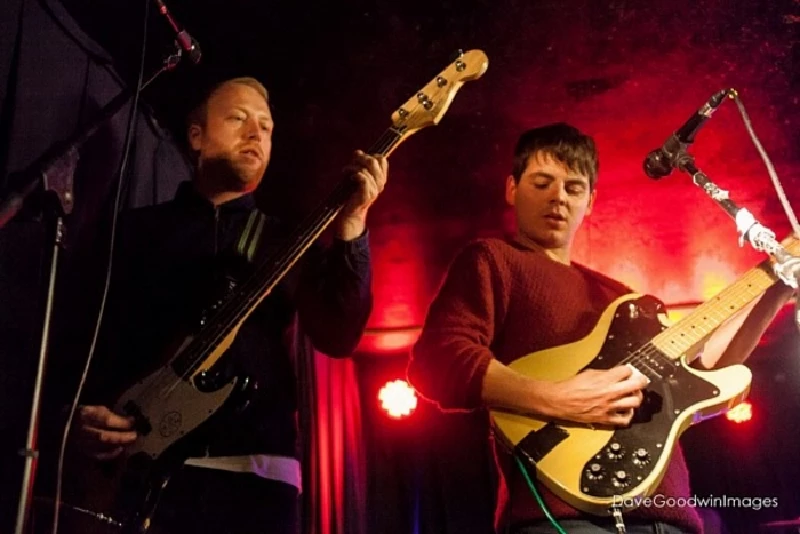
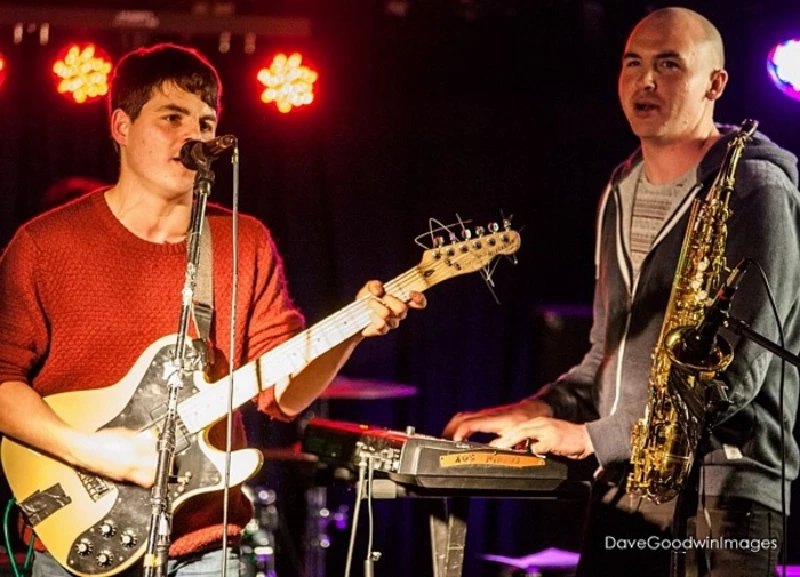
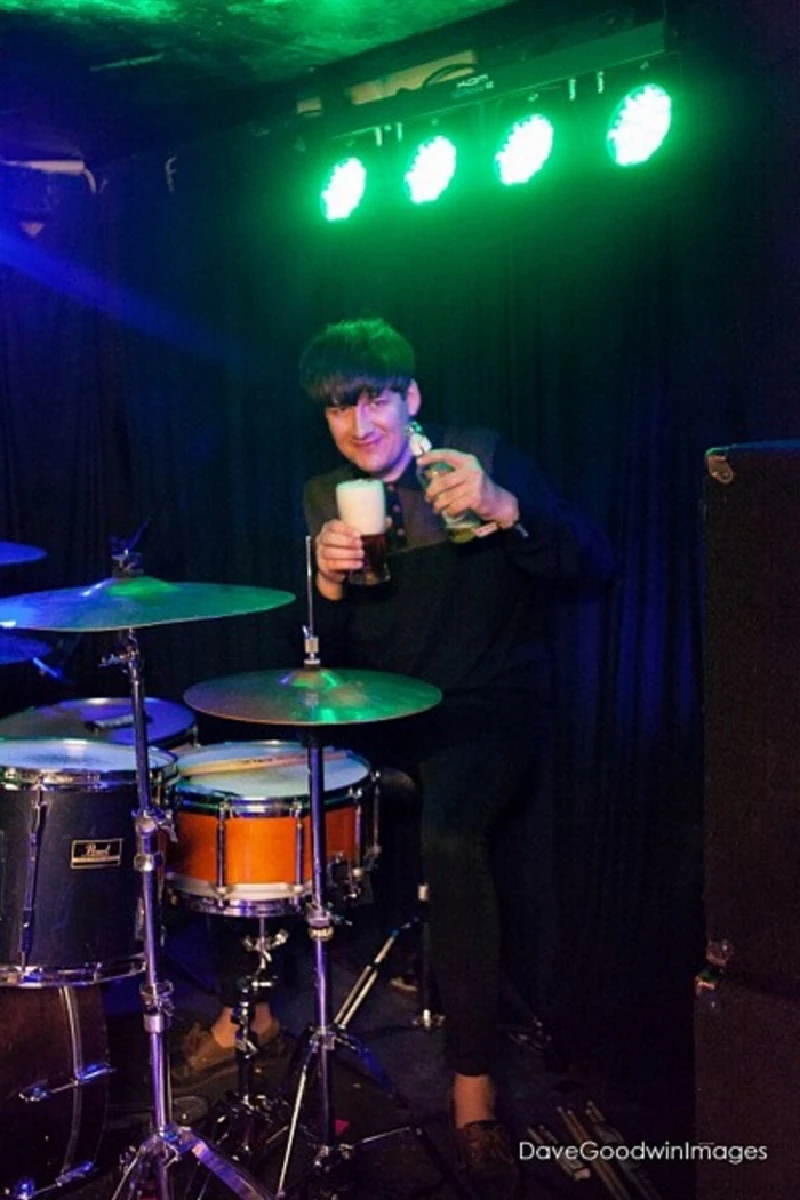
live reviews |
|
Spiders Web, Grimsby, 23/7/2016 |
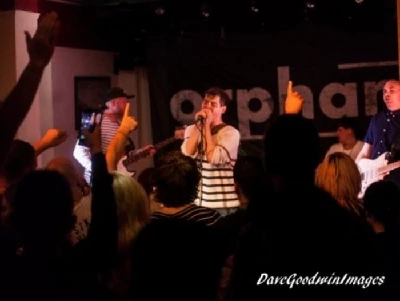
|
| Dave Goodwin catches up with Orphan Boy in their own backyard at The Spiders Web in Grimsby for a warm and energetic night of anthemic proportions |
| Victoria Inn, Derby, 3/10/3015 |
reviews |
|
Coastal Tones (2015) |
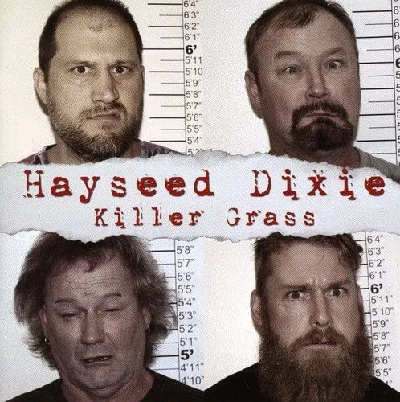
|
| Anthemic third album from reformed Grimsby-based band Orphan Boy, which reflects on Britain's twenty-first century society |
most viewed articles
current edition
Carl Ewens - David Bowie 1964 to 1982 On Track: Every Album, Every SongArmory Show - Interview with Richard Jobson
John McKay - Interview
Colin Blunstone - Thalia Hall, Chicago, 16/7/2025
Billie Eilish - O2 Arena, London, 10/7/2025
Bathers - Photoscapes 1
Loft - Interview
Visor Fest - Valencia, Spain, 26/9/2025...27/9/2025
Sir Tim Rice - Interview
Robert Forster - Interview
previous editions
Manic Street Preachers - (Gig of a Lifetime) Millennium Stadium, Cardiff, December 1999Heavenly - P.U.N.K. Girl EP
Beautiful South - Ten Songs That Made Me Love...
Oasis - Oasis, Earl's Court, London, 1995
Peter Perrett - In Dreams Begin Responsibilities Interview Part One
Boomtown Rats - Ten Songs That Made Me Love....
Coldplay - Wembley Arena. London, 16/8/2022
Prolapse - Interview
Pixies - Ten Songs That Made Me Love...
Trudie Myerscough-Harris - Interview
most viewed reviews
current edition
Davey Woodward - Mumbo in the JumboSick Man of Europe - The Sick Man of Europe
Lucy Spraggan - Other Sides of the Moon
Amy Macdonald - Is This What You've Been Waiting For?
Phew, Erika Kobayashi,, Dieter Moebius - Radium Girls
Suzanne Vega - Flying With Angels
Bush - I Beat Loneliness
Alice Cooper - The Revenge of Alice Cooper
Cynthia Erivo - I Forgive You
Blueboy - 2
Pennyblackmusic Regular Contributors
Adrian Janes
Amanda J. Window
Andrew Twambley
Anthony Dhanendran
Benjamin Howarth
Cila Warncke
Daniel Cressey
Darren Aston
Dastardly
Dave Goodwin
Denzil Watson
Dominic B. Simpson
Eoghan Lyng
Fiona Hutchings
Harry Sherriff
Helen Tipping
Jamie Rowland
John Clarkson
Julie Cruickshank
Kimberly Bright
Lisa Torem
Maarten Schiethart